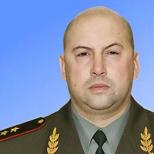Candidates for governors of the Western Territory. Rosatom launches one of the largest investment projects in the Arkhangelsk region
Anatoly Vershinin
Agrarian Party
Born on September 9, 1951 in the Chita region. In 1975, he graduated with honors from the Buryat Agricultural Institute with a degree in livestock scientist and began working in his native village of Verkhniy Ulkhun, Kyrinsky district, as a livestock breeder at the Put Ilyich collective farm. Soon he headed the Kyrinsky district Komsomol organization, and in 1982 he was transferred to party work. In 1989 he graduated from the Novosibirsk Higher Secondary School. In 1996, he headed the Chita branch of the Irkutsk State Agricultural Academy. Since 2011, he has been a professor at the Department of Economics of the Transbaikal Agrarian Institute. He was a deputy of the Legislative Assembly of the first convocation.
Tagir Aglyamov
"Patriots of Russia"
Born on August 24, 1960 in the Tatar Autonomous Soviet Socialist Republic. He graduated from the Caspian Higher Naval School, served in the naval units of the border troops in the Far East, and in the FSB border department in Transbaikalia. He is a member of the region's public chamber.
Nikolay Merzlikin
Born on October 21, 1951 in Moscow. In 1974 he graduated from Donetsk State University with a degree in radiophysics. He worked as an engineer at the Donetsk Institute of Physics and Technology, then served in the 47th Missile Division (Steppe Station). In 1976 he came to Krasnokamensk, Chita region, and worked at the Priargunsky Mining and Chemical Plant. In 1977, he became an instructor in the organizational department at the city committee of the CPSU of Krasnokamensk. In 1982-1985 - second secretary of the city committee of the CPSU of Krasnokamensk. In 1985-1987 - assistant to the head of the group of advisers to the CPSU Central Committee in Afghanistan. From 1987 to 1989 - first secretary of the city committee of the CPSU of Krasnokamensk. Since 1989, deputy head of the department of organizational, party and personnel work of the Chita regional committee of the CPSU, and then head of the ideological department of the Chita regional committee of the CPSU. From 1990 to 1991, first secretary of the Chita Regional Committee of the CPSU. Deputy of the Chita Regional Duma (fraction of the Communist Party of the Russian Federation) in 2004-2008. Member of the Legislative Assembly of the Trans-Baikal Territory (fraction of the Communist Party of the Russian Federation) since 2008. He was awarded the Order of Friendship of Peoples and the medal "For Services to the Chita Region." Currently, he is the General Director of GRK Bystrinskoye LLC, which is developing complex mineral deposits in the east of the Trans-Baikal Territory.
Natalia Zhdanova
"United Russia"
Born on February 16, 1964 in Chita. In 1986 she graduated from the Chita State Pedagogical Institute named after N.G. Chernyshevsky, specialty "Chinese and English languages"; in 2002 – Far Eastern Academy of Public Service with a degree in Municipal Administration. Candidate of Historical Sciences. From 1986 to 1993 she worked as a Chinese language teacher at secondary school No. 4 in the city of Chita. In 1994-1995 – deputy director for foreign languages at secondary school No. 4 in the city of Chita. From 1995 to 2001, she was the director of the municipal educational institution "Multidisciplinary Language Gymnasium No. 4" in the city of Chita. From 2001 to 2008, she held the position of chairman of the education committee of the administration of the urban district "City of Chita". In 2008-2013 - Deputy Chairman of the Government of the Trans-Baikal Territory for Social Issues. From March to September 2013 - Acting Minister of Education, Science and Youth Policy of the Trans-Baikal Territory. Since September 8, 2013 - Chairman of the Legislative Assembly of the Trans-Baikal Territory from the United Russia faction. On February 17, 2016, Vladimir Putin appointed Zhdanova as acting governor of the Trans-Baikal Territory. She was awarded the medal of the Order of Merit for the Fatherland, II degree. He has the title "Honored Worker of General Education of the Russian Federation", "Honored Worker of Education of the Chita Region", "Best Municipal Employee of the Russian Federation". Since February 17, 2016, acting governor of the Trans-Baikal Territory.
The head of the Trans-Baikal Territory, Natalya Zhdanova, may resign early as part of the next rotation of the gubernatorial corps, sources told RBC. She worked in this position for only two years.
Natalia Zhdanova (Photo: Evgeny Epanchintsev / TASS)
The head of Transbaikalia, Natalya Zhdanova, may resign as part of a new wave of replacements in the governor’s corps, two sources close to the region’s leadership told RBC. The federal center is seriously discussing the possibility of her leaving, and a replacement is being selected for the head of the region, both interlocutors clarified.
Negative background
The reason why 54-year-old Zhdanova may leave her post is the difficult socio-economic situation in the region (at the end of 2017, 65th place in the RIA Rating ranking of socio-economic development of regions), one of the most difficult in the country, explains one of the sources. In addition, Zhdanova has a low level of support among the population, a negative information background has formed around her, added another interlocutor close to the regional leadership.
The main reason for Zhdanova’s resignation may be related to her low personal popularity caused by her poor work with public opinion, political scientist and regionalist Rostislav Turovsky told RBC. Economic prospects for Transbaikalia are not bad, but all projects are being implemented very slowly. This is not the governor’s fault, but still the investment climate in the region is not improving, and prospects still depend on the decisions of federal financial and industrial groups, he notes.
Transbaikalia is also known for active protests by state employees, which is directly related to the shortcomings of the regional authorities, Turovsky added. He compares Zhdanova with Svetlana Orlova, who lost in the second round of gubernatorial elections in the Vladimir region, “who failed to cope with social policy and PR,” and calls Zhdanova one of the most problematic heads of regions.
Zhdanova has recently almost stopped her active work “and seems to be waiting for something,” says another interlocutor close to the regional authorities.

Immersion method
Originally a teacher, Natalya Zhdanova was elected to her post in 2016. She replaced the representative of A Just Russia, Konstantin Ilkovsky, who resigned due to Moscow's claims.
Ilkovsky’s departure was preceded by a report from the head of the Ministry of Construction, Mikhail Men, on the implementation of the program for the resettlement of emergency housing. Men spoke about the failure of the program, and this applied to both Transbaikalia and the Republic of Karelia. Ilkovsky resigned, and the then head of Karelia, Alexander Khudilainen, was reprimanded by the Russian President.
Ilkovsky that he decided to write a statement after complaints were made to him; he was always ready to resign, so “there are no personal tragedies.” At the same time, Spravednoross noted that he was leaving his post with a feeling of regret.
Later, presidential press secretary Dmitry Peskov said that Putin “personally, using the immersion method,” understood the situation in the Trans-Baikal Territory and Karelia, and on the eve of Ilkovsky’s departure, he met with him and Khudilainen and decided to resign one and reprimand the other.
Speaker of the Legislative Assembly of the Trans-Baikal Territory Natalya Zhdanova was appointed acting governor, who held this post for three years, and previously worked for several years in the government of the Trans-Baikal Territory. In the elections she received 54.3% of the votes.
Both Zhdanova herself and her predecessors were unable to cope with the depression of the region, in particular with non-payment of salaries to public sector employees, political scientist Nikolai Mironov told RBC. According to Mironov, Zhdanova does not have enough experience to control the region’s economy.
From teachers to governors
Natalya Zhdanova was born in Chita. She began her career as a Chinese teacher and soon became an assistant principal and then a high school principal. In 2001, Zhdanova headed the education committee of the Chita administration. In 2008, having received a second education in public administration, she became Deputy Chairman of the Government of the Trans-Baikal Territory for Social Issues, and in 2013 began acting as Minister of Education, Science and Youth Policy of the region. In the fall of the same year, she was elected chairman of the regional legislative assembly. Zhdanova took charge of the region on February 17, 2016.
The political scientist called the current governor's team weak and in need of serious changes. At the same time, the expert is convinced that the problems of Transbaikalia cannot be solved without additional investment of money. “We need to increase the budget - it is extremely small, and create growth points,” he noted. “As long as this is not the case, just changing faces is not enough.”
After the elections
This year, on a single voting day on September 9, elections to the regional legislative assembly and municipal campaigns were held in Transbaikalia. In the elections to the Legislative Assembly, United Russia took first place, gaining 28.31% of the votes, but lost more than 10% compared to the previous result. The number of mandates overall decreased from 36 to 21. But due to the coalition with the LDPR, United Russia managed to retain most of the leadership positions, including the post of speaker.
United Russia lost to the communists on the lists in the elections to the municipal council of the largest district - Chitinsky. In Krasnokamensk, the second most populous city in the region, the party in power received only five seats out of 20. In the Borzinsky district, the Communist Party of the Russian Federation was ahead of United Russia by 1.5% on the lists; in single-mandate districts, the Communists received 11 seats out of 20, candidates from United Russia received six .
In the Tungochensky district, United Russia lost on the lists of both the Communist Party of the Russian Federation and the Liberal Democratic Party, but in the districts they received an equal number of mandates with the Communist Party of the Russian Federation. In the Krasnochikoisky and Petrovsk-Zabaikalsky districts, the party in power received a majority both in the lists and in the districts.
Of the seven campaigns for the election of district heads, United Russia lost three in the region.
Two weeks after the resignation of the head of the Trans-Baikal Territory, Natalya Zhdanova, Vladimir Putin finally appointed an acting one - the former first deputy minister for the development of the Far East, Alexander Osipov. Experts call Transbaikalia an extremely depressed region, which, moreover, does not receive serious investment from the center. This is probably why there were no people willing to lead the region for so long; there were even rumors of refusals from potential applicants. Osipov is a native of Rostov-on-Don, worked in the Far East for five years, and is on the board of directors of the energy company RusHydro. He has nothing in common with the Trans-Baikal Territory, so he is a typical Varangian. Novaya's correspondent collected expert opinions on this appointment.
“We thought about the appointment for so long, because there are no kamikazes,” says Natalya Zubarevich, an expert in the field of socio-economic development of regions. - Everything is fine, the person will serve a little, then he will be replaced by the next one. Rearranging the chairs will still not change the room.
In August of this year, the St. Petersburg Politics Foundation put the Trans-Baikal Territory on a par with regions “with weak socio-political stability.” Natalia Zubarevich lists its main problems:
“Lack of investment for several decades, a very dead economy, agriculture - mostly just cattle breeding.
And Chita is not big enough to be a driver of development. A very depressed region."
Transbaikalia also has a reputation as the capital of AUE (an informal association of minors who romanticize the prison lifestyle). In 2014, the regional prosecutor’s office made a statement that in Chita and other regions of the region there were numerous “stable groups of young people aged 14-18.<…>Such groups instill a criminal worldview and extort money from students, allegedly to form a so-called “common fund.” Over the following years, this situation only worsened; one of the latest incidents related to AUE occurred in August of this year in Chita - local residents attacked a military train, one person was killed and three were injured.
Former governor Natalya Zhdanova left her post on October 11, citing “internal motives and objective circumstances.” Shortly before the announced resignation, the media predicted such a development of events due to the lack of support for the head of the region among local residents and the difficult socio-economic situation. The appointment of the acting head had to wait two weeks.
“The region itself is considered difficult, unbearable and unprestigious,” says political scientist Rostislav Turovsky. “This is probably one of the reasons why it was difficult to select a person from the federal elite. On the other hand, if we talk about representatives of the regional elite, the personnel situation there is frankly bad, so it was not possible to find a candidate there either, and the center did not trust anyone from there. They decided to place an unassigned official from the leadership of the Ministry of Eastern Development in a region that is not very familiar to him, but in which he can try to use his experience working in the ministry, when he was involved in the Far East there.
Political scientist Alexander Kynev spoke about Osipov’s prospects in Transbaikalia. “The Trans-Baikal sufferings ended with the appointment of an acting deputy who had nothing to do with the region and had never been involved in the public policy of a “pure manager.”<…>He’s probably a good person, but this is not a profession; in such a complex region, politicians and negotiators with high personal authority are needed,” Kynev writes on his Facebook.
“It’s difficult to talk about prospects, since Transbaikalia is on the periphery of the agenda,” Mikhail Vinogradov, head of the St. Petersburg Politics Foundation, told Novaya. — And since the replacement of the long-lived governor Geniatulin ( Ravil Geniatulin headed the Trans-Baikal Territory from 2008 to 2013. — Ed.) Transbaikalia rather got lost against the general background. Now there is an attempt to join the region to the Far Eastern vector (technically this is the Siberian Federal District) - to projects around the development of Vladivostok. But there are some variables here, including the uncertainty surrounding the person of the governor of Primorye.
Osipov has already asked the president for personal assistance in distributing the regional support tools that exist in the Far East. Among them: infrastructure subsidies for investment projects and the provision of one hectare of land to citizens for free.
Rostislav Turovsky believes that how long Osipov will last in the place of acting governor will depend on whether he can become a “politician”: “He is a young official, not a politician. It is necessary to take into account protest sentiments, which are certainly developed in the Trans-Baikal Territory, and the fact that it does not control the attitude of United Russia. Not to mention relations with other parties that scored points in the last elections to regional legislative assemblies.”
— Will he be able to become that politician and resolve this situation? - Turovsky asks. “Otherwise, there will be an option similar to the history of the Khabarovsk Territory - the nomination of a candidate from the parliamentary opposition who will play on protest sentiments and, perhaps, find support from part of the local elite.
Elections for the governor of the Trans-Baikal Territory will take place in September 2019.
On October 25, President Vladimir Putin accepted the early resignation of the head of Transbaikalia, Natalya Zhdanova. After the elections, seven more governors left their positions. What caused the autumn rotation and whether the new arrivals will be able to cope with the tasks - in the “360” material.
The President appointed Alexander Osipov as acting governor of Transbaikalia. “The day before, late in the evening, in the Kremlin, Vladimir Putin held a working meeting with Alexander Osipov, during which he announced his decision to appoint him as acting governor of the Trans-Baikal Territory,” the Kremlin press service reported.
Osipov promised to continue work on the development of the Bystrinsky polymetallic and Argun uranium deposits, create the necessary infrastructure, social facilities, priority development areas and asked the Russian leader for support and assistance.
“I ask for your support in developing a social security plan for the growth points of the Trans-Baikal Territory. Such plans have been developed and are already being implemented in the Far Eastern Federal District. If you approve, we will develop such a plan and submit it for approval and, accordingly, for financing,” Osipov asked the president.
49-year-old Alexander Osipov graduated from the Institute of National Economy with a degree in Economics and Management in Rostov-on-Don, then from Stavropol State University with a degree in Jurisprudence. Worked in the Federal Tax Service of Russia. Later, as a financial director - in Russian holdings, including the woodworking United Panel Group and the regional division of RAO UES. In September 2013, Osipov was appointed assistant minister for the development of the Far East.
Long appointment
Dean of the Law Faculty of ZabSU Andrei Makarov explained to “360” that Transbaikalia is one of the most difficult regions of Russia in financial and social terms. Therefore, the resignation of Zhdanova, who submitted her petition on October 11, was accepted only on the 25th. It took time to find a suitable candidate.
For almost 18 years, when the region was ruled by Ravil Geniatulin, many problems accumulated in the region. Then he was replaced by Konstantin Ilkovsky, and Zhdanova took his place. The problems have not gone away, they have simply been inherited. Over the years, Transbaikalia has turned into a transit-buffer zone for China, in which there is not a single large state-owned enterprise. Those that have existed since Soviet times (for example, the worsted-cloth factory, the Argun uranium mining plant and others) are on the verge of survival. The outflow of population from Siberia and the Far East is the largest in Russia.
This is probably why the interim was not appointed for so long. If other regions had more than one candidate for governor, then we probably have to pay extra for someone to agree to lead the region. Difficult region
Andrey MakarovDean of the Faculty of Law of ZabSU.
At work, the dean had the opportunity to cross paths with Natalya Zhdanova, who seemed to him an intelligent, strong and even somewhat strict leader. However, he explained, Transbaikalia cannot be sustained on personal qualities alone: the region is still not gasified; it is heated with wood and coal. Energy tariffs are the highest in Siberia. Apart from the Trans-Siberian Railway, there is no connection with the rest of Russia. To develop, the region needs strong ties with Moscow and the Kremlin. The region, Makarov believes, will not be able to develop without a federal program, setting functional tasks for it and without interest from the central authorities.
Outsider
One of the possible reasons for the appointment of Osipov as the acting head of Transbaikalia, Makarov named his previous position: assistant minister for the development of the Far East. For a long time, the expert clarified, there has been talk that Transbaikalia should belong not to the Siberian Federal District, but to the Far Eastern Federal District. There is even a federal program for the “Development of the Far East and Transbaikalia.” True, only Primorye is developing along it. Perhaps with Osipov’s appointment some positive changes will begin in Transbaikalia.
“In addition, maybe an outsider with experience in personnel work will be able to see who can be nominated as candidates in the upcoming elections. Or, during these six months, he himself will assemble a team and implement some kind of program, which the federal authorities probably have. But my opinion is that Transbaikalia can be led normally not by one of the local elites, but by an outsider,” Makarov said.
At the same time, he emphasized, any positive change in the social or economic sphere of the region will be received with a bang by residents. After all, in Transbaikalia there are practically no conditions for the development of small businesses, there are wage debts, high housing and communal services tariffs, huge debts to contractors who won regional competitions back in 2015–2016, there are no jobs, while 50% of the population works in the public sector.
“It’s very good that someone from outside will come. Perhaps he will stop this regression and offer some options for the development of the region’s territory. Ordinary people are enthusiastic about the appointment. But local elites and officials are wary of the appointment. After all, their prosperity depends on whether they retain their “milking places” or not, naturally, they are in tension,” he concluded.
Why do governors “fall off” in the fall?
After the elections, in addition to the head of Transbaikalia Natalya Zhdanova, the following resigned: the head of Bashkortostan Rustem Khamitov, the governors of the Kursk region Alexander Mikhailov, the Kurgan region Alexey Kokorin, St. Petersburg Georgy Poltavchenko, as well as the heads of the Astrakhan region, Kabardino-Balkaria and the Primorsky Territory.
Political scientist Dmitry Oreshkin explained to 360 that the autumn rotation of governors suggests that the Kremlin is picking up “signals from below.” This time they came in the form of electoral scandals in the depressed regions of the Far East and Eastern Siberia. That is, the election results also acted as a communication channel, showing that in some corners of Russia people are irritated. In particular, residents of St. Petersburg were extremely dissatisfied with Poltavchenko.
“The Kremlin caught the signals and decided to change not the system, but the people. The logic is simple: elections cannot be canceled. Therefore, they change people who, like Poltavchenko, can lose the elections. After all, he is not good or bad, but simply no mayor. And this will deal a blow to the vertical of power. This means you need to change it in advance. As they say, if you can’t stop the process, lead it,” the political scientist added.
In 2019, Russia will hold additional elections of State Duma deputies and heads of 18 constituent entities. That is, the 2018 appointees will “stay in power” for less than a year and are unlikely to be able to achieve serious results. However, according to Oreshkin, people most likely will not vote for their competitors. After all, the logic of the electorate is simple: “Why vote against him if he has only been governor for a year.” At the same time, he emphasized, within a year the acting heads will have time to establish relations with local elites and do “something good” that, if properly promoted in the media, will bring victory in the elections.





